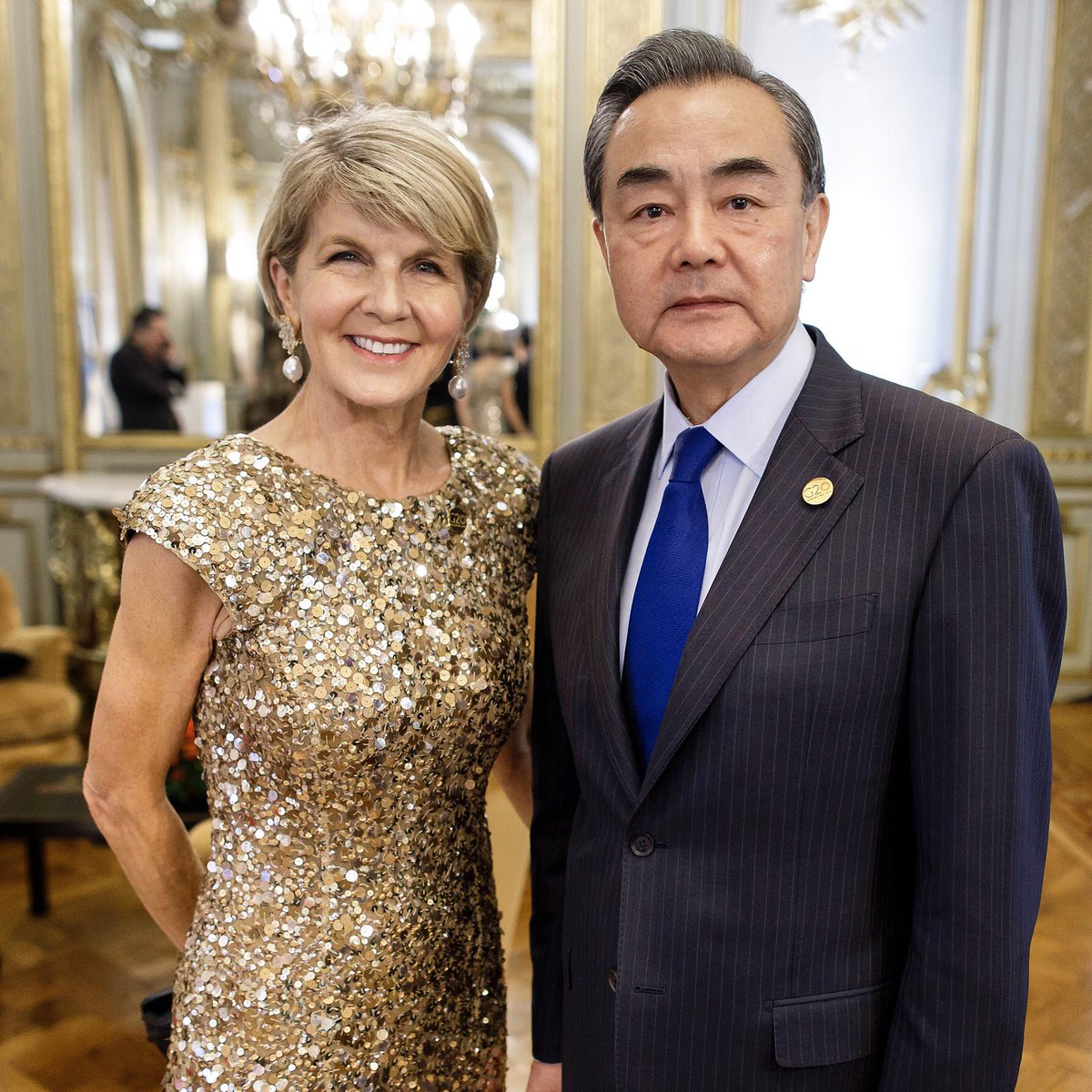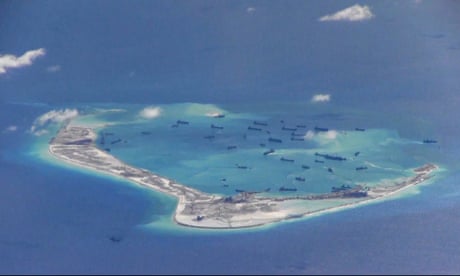By Katharine Murphy

Julie Bishop has raised objections to China’s militarisation of the South China Sea after weekend reports that a Chinese bomber capable of carrying a nuclear warhead had been on the disputed Paracel Islands.
With relations between Canberra and Beijing tense, courtesy of the Turnbull government’s pursuit of a crackdown against foreign interference, the Australian foreign minister has held a lengthy meeting with her Chinese counterpart, Wang Yi, on the sidelines of the meeting of G20 foreign ministers in Argentina.
Bishop characterised the discussion as “very warm and candid and constructive” and said she would shortly visit the Chinese capital.
She said she had a good long-term relationship with her Chinese counterpart and told the ABC that Australia would “continue to approach our bilateral relationship with goodwill and realism and pragmatism and open communication”.
While the meeting in Argentina was obviously intended to achieve a diplomatic thaw, Bishop confirmed she had raised objections about China’s activities in the South China Sea, including the weekend incident.
The Chinese airforce said several bombers of various types – including the long-range, nuclear strike-capable H-6K – carried out landing and take-off drills at an unidentified island airfield after carrying out simulated strike training on targets at sea.
“Australia’s position has been very clear and consistent and it is very well known to China. Our concern about militarisation of disputed features of the South China Sea has been the subject of a number of discussions, and was again today,” Bishop said on Tuesday.
She said Australia had consistently raised concerns about activities in the disputed territory as part of “enduring, broad dialogue with China, and I don’t believe China was surprised by my raising it again today”.
Bishop also discussed the South China Sea with the US at the G20 meeting.
She said Australia would continue to exercise its rights to freedom of navigation and overflight “and support the rights of others to do so” – and had conveyed that position to China.

China lands nuclear strike-capable bombers on South China Sea islands
The foreign minister has been criticised over her handling of the Australia-China relationship by a former Australian ambassador to Beijing, Geoff Raby, now a Chinese agent based in China.
Bishop has hit back at the critique from Raby, calling him ill-informed and “profoundly ignorant, might I say, about the level of engagement between Australia and China at present and the state of the relationship”.
In a translated press statement after the G20 talks, the Chinese foreign minister was less upbeat than Bishop.

China lands nuclear strike-capable bombers on South China Sea islands
The foreign minister has been criticised over her handling of the Australia-China relationship by a former Australian ambassador to Beijing, Geoff Raby, now a Chinese agent based in China.
Bishop has hit back at the critique from Raby, calling him ill-informed and “profoundly ignorant, might I say, about the level of engagement between Australia and China at present and the state of the relationship”.
In a translated press statement after the G20 talks, the Chinese foreign minister was less upbeat than Bishop.
He acknowledged China-Australia relations had “encountered some difficulties”.
He also urged Australia to adopt a more positive disposition towards Beijing.
He also urged Australia to adopt a more positive disposition towards Beijing.
“If Australia sincerely hopes that the relations between the two countries will return to the right track... they must break away from traditional thinking, take off their coloured glasses, and look at China’s development from a positive angle,” Wang said.
Aucun commentaire:
Enregistrer un commentaire